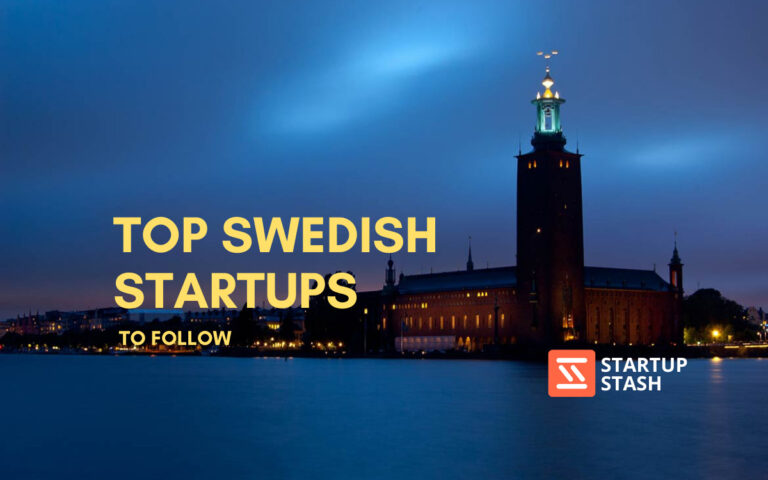South Africa's startup ecosystem has made significant strides in recent years, leading the continent in terms of innovation and entrepreneurial activity. Cape Town is recognized as a prominent tech hub, attracting substantial foreign investment and skilled talent. The city alone hosts over 450 tech firms, employing more than 40,000 people, which is a larger ecosystem than both Nairobi and Lagos combined.
A variety of support structures encourage the top startups in South Africa, including major banks like Telkom, FNB, and Nedbank, which offer targeted programs to nurture entrepreneurial growth. Organizations like the National Youth Development Agency and Small Enterprise Development Agency provide financial and non-financial assistance to tackle challenges like high youth unemployment rates. This support has fostered a vibrant startup scene, particularly in the fintech and ed-tech sectors.
Despite facing challenges, South Africa's startup industry shows remarkable resilience and potential. Cape Town and Johannesburg are leading the charge, with Cape Town ranking fourth in Africa and showing strong performance in the payments industry globally. The collective value of African startup ecosystems is estimated at $6.6 billion, with a significant portion attributed to South African cities. This powerful ecosystem makes South Africa a key player in the global startup arena.
1. Jambo
Year Founded: 2021
HQ: Nairobi
Size: 51-200
Founders: James Zhang

Jambo is a tech startup from South Africa that is making a big impact with its affordable Web3 smartphone called the JamboPhone. Priced at $99, the JamboPhone is designed for young people in developing countries. It comes with preloaded apps like JamboApp and Petra Wallet, allowing users to manage digital assets and access global opportunities. This smartphone aims to help people in regions with high inflation and limited banking services by providing financial empowerment and education tools.
Jambo's partnership with the Aptos blockchain enhances the JamboPhone's capabilities, ensuring secure and low-cost transactions. The phone is not just for communication but also serves as a gateway to the digital economy. Users can enjoy features like JamboPlay and JamboEarn, which offer fun ways to engage with Web3. Jambo has secured $37.5 million from 26 investors. Its most recent funding round was conducted in November 2023.
2. Jinjer
Year Founded: 2020
HQ: Johannesburg
Size: 1-50
Founders: Sinethemba Ncede

Jinjer is an innovative trading platform designed for developing economies, particularly South African slums. It facilitates the omni-channel sales process by linking retailers with producers and wholesalers. It has a point-of-sale (POS) system for in-person sales. Jinger also has a feature called Smart Inventory that alerts merchants to products that are about to run out ahead of time and encourages them to place an order through Jinjer.
In addition to giving retailers and FMCG companies useful insights and convenience, Jinjer gives lenders access to data. Lenders can use this data to assess risk and finance businesses operating in the unofficial market. Jinjer generates revenue within the areas in which it conducts business. Its strategy is to develop the township economy in its entirety by generating revenue and employment opportunities.
Jinjer has successfully secured funding from local venture capital firms, like Ideanav, which will be used to improve its capabilities, expand its market presence, and develop new features to meet the evolving needs of businesses in South Africa and beyond.
3. ArcadeNetwork
Year Founded: 2021
HQ:
Size: 1-50
Founders: Chinka Gupta

ArcadeNetwork is a platform in the metaverse space, providing the first-ever decentralized cross-metaverse bridge. This ecosystem allows seamless movement of in-game assets across different metaverses. It utilizes blockchain and NFT technologies to improve interoperability. Key features of ArcadeNetwork include the ARCMinter for asset creation, ARC Marketplace for trading, ARC Relayer Bridge for asset transfer, and ARC Notecase for multicurrency and NFT storage. Its goal is to unify gaming experiences across various platforms, including PC, mobile, and VR.
ArcadeNetwork's platform allows game developers and artists to create, manage, and monetize their assets within the metaverse. It provides pluggable SDKs for easy integration and aggregation of gaming data. Additionally, the ARCVerse allows developers to launch metaverses quickly without substantial upfront investment. In 2021, it received a total of $75K from Early Stage Ventures.
4. Pineapple
Year Founded: 2017
HQ: Johannesburg
Size: 51-200
Founders: Matthew Elan Smith, Marnus van Heerden, Ndabenhle Junior Nglube, and Sizwe Ndlovu

Pineapple is one of the South African startups in the insurance-tech industry. It offers affordable online insurance, using a tech and AI-powered model to lower costs and return unused premiums to customers annually. Users can get insurance quotes in less than 10 minutes by uploading a picture of the item they want to insure. The premiums users pay are stored in individual "Pineapple wallets," and claims are paid from this network of wallets.
Pineapple appeals to a broad customer base by offering transparent, affordable, and user-friendly insurance solutions. It serves thousands of customers, nearly half being first-time insurance buyers, indicating its significant impact on increasing insurance penetration in South Africa. Pineapple's recent Series B funding round, which raised $31.1 million, was led by Futuregrowth Asset Management, Talent10, and MIC. This investment will enable Pineapple to expand its operations and improve its AI-driven platform.
5. Yoco
Year Founded: 2015
HQ: Cape Town
Size: 200+
Founders: Katlego Maphai

Yoco is a fintech company specializing in providing point-of-sale (POS) payment solutions tailored to small and medium-sized enterprises (SMEs). Its core product offerings include card readers and mobile apps that allow businesses to accept card payments seamlessly. Yoco's mobile app provides additional features such as sales tracking, invoicing, and customer management.
Yoco has expanded its customer base to over 150,000 businesses across South Africa. Its solutions have helped many small businesses transition from cash-only operations to accepting card payments, increasing their sales and improving customer satisfaction.
Yoco has successfully raised substantial funding to support its growth and expansion.
In 2021, Yoco secured $176 million in a Series C funding round led by Dragoneer Investment Group. This funding has enabled Yoco to improve its product offerings, expand its team, and explore new markets.
6. Moove
Year Founded: 2019
HQ: Nigeria
Size: 201-500
Founders: Ladi Delano and Jide Odunsi

Moove is a global mobility fintech company founded in Africa that offers financial services and revenue-based vehicle financing to mobility entrepreneurs. It helps businesses operating in ride-hailing, mass transit, logistics, and fast delivery platforms. Moove is an impact-driven company supported by some of the top investors in the world, offering clients who have previously turned away from financial services a route to asset ownership and sustainable employment development.
Moove has secured a whopping $444 million, of which Uber invested $100 million. Its Series B round in 2024 will help expand the fleet of vehicles available for lease to drivers, thereby increasing its market presence and capacity to serve more drivers.
7. Yodawy
Year Founded: 2018
HQ: El Mohandessin, Al Jizah
Size: 501-1000
Founders: Yasser AbdelGawad

Yodawy is a digital health company known for providing convenient access to medicines and healthcare products through its mobile application. It operates as an e-commerce platform that allows users to browse and purchase a wide range of pharmaceuticals, healthcare products, and medical devices at very affordable rates. Yodawy offers digital prescription services, allowing users to upload their prescriptions through the app. Pharmacists then review and process these prescriptions for fulfillment, making the process more efficient and convenient for customers.
Yodawy has contributed significantly to improving access to healthcare products in Egypt and South Africa, particularly in urban areas where access to pharmacies or specific medications may be limited. In 2024, it secured a total of $40.5 million from Series B funding, direct investment, and mid-cap funds. The funding will help Yodawy achieve its expansion goals, which include growing its clientele, improving its technologically advanced prescription fulfillment skills, and adding greater value to the healthcare services industry.
8. Planet42
Year Founded: 2017
HQ: Johannesburg
Size: 200+
Founders: Eerik Oja and Marten Orgna

Planet42 is one of the South African startups established in 2017. It focuses on transforming the vehicle leasing landscape in Africa. It offers an innovative and accessible way for individuals to lease vehicles, with the option to buy them outright as the lease progresses. This approach is particularly beneficial in markets where traditional vehicle financing is limited or unavailable to many consumers.
Planet42, in its quest to transform the vehicle leasing landscape, has forged partnerships with dealerships to provide customers with an alternative to traditional vehicle financing. Customers can lease a vehicle with the possibility of ownership after the lease period. Planet42's use of data analytics to assess customers' creditworthiness and tailor lease agreements to their financial capabilities is a testament to its commitment to customer satisfaction.
In 2021, Planet42 secured a significant $100 million in funding, a clear indication of its growth trajectory and its plans to expand operations and reach more customers. With this recent funding, its total sum amounted to $166 million.
9. Peach Cars
Year Founded: 2020
HQ: Nairobi
Size: 51-200
Founders: Kaoru Kaganoi

Peach Cars KE is an automotive startup focused on transforming the car-buying experience through digital innovation. It offers a transparent platform for purchasing pre-owned vehicles. By providing detailed car listings, comprehensive vehicle inspections, and a user-friendly interface, it aims to make car buying more accessible.
Peach Cars KE also offers value-added services such as financing options, insurance assistance, and after-sales support. This approach ensures that customers receive a complete and hassle-free car ownership experience. Peach Cars raised a total of $5 million in its seed round in 2023. The money will be allocated to making the car buying process simpler for its customers with a user-friendly interface. Peach Car also wants to increase its user base to find and sell as many cars as possible.
10. Everlectric
Year Founded: 2020
HQ: Pretoria Menlyn Maine
Size: 1-50
Founders: Ndia Magadagela and Wesley Walt

Everlectric is a company focused on accelerating the adoption of electric vehicles (EVs) and sustainable transportation solutions. Its mission is to make electric mobility more accessible and practical for businesses and individuals. Everlectric offers comprehensive solutions for EV charging infrastructure, like installing charging stations and managing the electrical grid integration.
Everlectric offers intelligent charging options and real-time data analytics to maximize vehicle performance and energy consumption. In 2023, it raised an undisclosed sum from three local investors. Everlectric plans to invest in growing its fleet of electric vehicles, helping more businesses transition from traditional vehicles to EVs.
11. Carry1st
Year Founded: 2018
HQ: Cape Town
Size: 51-200
Founders: Lucy Hoffman, Cordel Robbin-Coker, and Tinotenda Mundangepfupfu

Carry1st is a South African startup that focuses on mobile gaming and entertainment. Founded in 2018, it aims to build a gaming ecosystem tailored to African audiences. Its primary offering is a platform that distributes and monetizes mobile games designed to resonate with African gamers. It partners with game developers to localize and distribute its games, making them accessible to a diverse African audience.
Carry1st's influence extends beyond game distribution. Its localized payment solutions, customer support, and community engagement features are revolutionizing users' gaming experience. This comprehensive approach has not gone unnoticed, as Carry1st successfully secured over $57 million from a Series A funding round in 2021, a testament to its growing significance in the industry.
12. Momint
Year Founded: 2021
HQ: Cape Town
Size: 1-50
Founders: Ahren Posthumus and Adam Romyn

Momint is a South African blockchain company specializing in the trade of real assets and legal contracts. It has gained recognition for its innovative approach, particularly in renewable energy investments. One of its standout initiatives is SunCash, which allows people to purchase and trade solar cells. This initiative promotes renewable energy adoption and addresses South Africa's energy crisis. It also allows users to sell solar energy back to public institutions, creating a beneficial cycle for both users and the environment.
Momint also made headlines by hosting Africa's largest digital asset auction in March 2022. Momint sold Nelson Mandela's original arrest warrant for two million rands in this auction. The funds raised from this auction were used to support the restoration of the Liliesleaf Heritage Site.
Momint’s platform features a built-in digital wallet for seamless transactions and leverages decentralized finance to simplify solar investments. It recently closed its accelerator/incubator round to raise a total of $2.8 million. Momint is leveraging recent funding to expand its innovative projects, integrating blockchain and renewable energy solutions. More specifically, it is focusing on investing in SunCash.
13. Jem
Year Founded: 2020
HQ: Cape Town
Size: 1-50
Founders: Simon Ellis and Caroline Van Der Merwe

Jem is a comprehensive human resources (HR) platform designed to streamline and improve business HR processes. It offers a suite of integrated HR tools that cover various aspects of HR management, including recruitment, onboarding, performance management, payroll, and employee engagement. It helps automate many HR tasks, such as applicant tracking, employee record management, and payroll processing, which reduces administrative burdens.
Jem focuses on improving the employee experience through efficient onboarding processes, clear performance tracking, and accessible self-service options, contributing to higher employee satisfaction and retention. It provides data-driven insights and analytics that help HR professionals make informed decisions, identify trends, and address potential issues proactively. Jem has secured a total of $2 million in funding in 2023. It plans to use the funds to improve its platform and expand its market presence.
14. Hohm Energy
Year Founded: 2021
HQ: Johannesburg
Size: 51-200
Founders: Tim Ohlsen

Hohm Energy focuses on accelerating the adoption of rooftop solar energy in South Africa. Its innovative platform digitizes solar energy requirements and provides access to financing. This fintech aspect addresses the common hurdle of funding for solar energy projects, making it easier for customers to adopt solar energy solutions.
Hohm Energy's recent $8 million seed funding, the largest for a South African tech startup, is a testament to the company's potential. Led by E3 Capital and 4DX Ventures, with participation from several other investors, this funding brings their total to $10.6 million. Hohm Energy has already made significant strides, generating over 17,000 custom solar rooftop designs worth $190 million and securing $90 million in financing applications.
The funding will be used to further improve their technology, product innovation, and solar installer skills development, making rooftop solar more accessible and affordable. Hohm Energy plans to launch the Hohm School program to train local solar installers, further supporting the solar energy infrastructure in South Africa.
15. Stitch
Year Founded: 2019
HQ: New Cape Town
Size: 51-200
Founders: Priyen Pillay, Natalie Cuthbert, and Kiaan Pillay

Stitch is a fintech company that offers innovative payment solutions to help businesses easily connect to the financial system and scale faster. Its services allow businesses to accept and send payments, streamline financial operations, and improve overall customer experience. Stitch's offerings are designed to cater to various business needs, including e-commerce, B2B transactions, and omnichannel retail solutions.
One of Stitch's standout features is its Pay by Bank solution, which allows businesses to integrate secure payments directly from customers' bank accounts. This service is designed to optimize payment flows on websites and apps for an efficient payment process. Stitch's API, built on GraphQL, simplifies integration for developers, making it easier to co-build custom solutions.
Stitch has secured $52 million from Series A extension led by Ribbit Capital. It aims to expand its presence in South Africa while exploring new markets across the continent, including Kenya, Ghana, Egypt, and Nigeria.
FAQs
What are the strongest industries in South Africa?
The strongest industries in South Africa in 2024 include technology and software development, renewable energy, agriculture and agribusiness, healthcare and biotechnology, and e-commerce and online retail. Due to increasing demand and innovation, these sectors present significant opportunities for growth and investment.
What is the average investment in the startup industry in South Africa?
The average investment in the South African startup industry varies widely but has seen significant growth, with many startups securing investments ranging from $100,000 to several million dollars. In 2023, total venture capital investment in the country exceeded $250 million.
How many startups are there in South Africa?
As of 2024, South Africa is home to approximately 660 active startups, reflecting a dynamic and growing entrepreneurial ecosystem that spans various sectors, including fintech, health tech, agritech, and more.
How fast is the startup industry growing in South Africa?
The startup industry in South Africa is growing rapidly. In 2023, South Africa saw a shift in funding trends. According to the Big Deal's annual report, African startups raised $2.9 billion, marking a significant decline of over 50% from the $4.6 billion in 2022. Despite this overall decrease, Southern Africa showed positive growth, with South Africa receiving more than 97% of the region's funding.


